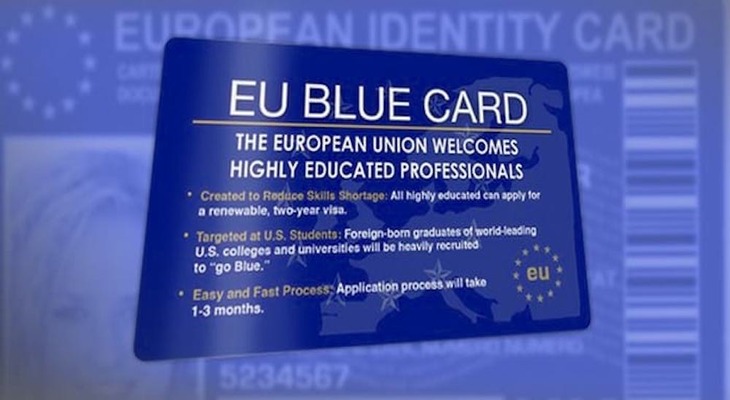
Considering a move abroad? If you have a remote work contract, or are self-employed, you may be eligible for a digital nomad visa.
To accommodate travellers with increasingly flexible work arrangements, Italy has become the latest country to introduce a visa tailored to international digital nomads.
We invited Samantha Wilson, a leading visa expert based in Italy, to share her insights on the new visa.
An insider’s view on Italy's visa system
Samantha Wilson, CEO of Smart Move Italy, specialises in helping people seeking a new life in Italy.
With years of expertise in Italian visas, Samantha is optimistic about how the digital nomad visa ‘opens the door to many people around the world who want to experience the Italian lifestyle’.
Why has the digital nomad visa been introduced?
Italy’s introduction of the remote work visa matches that of many other European countries, including Spain, Estonia, and Portugal. Many nations are seeking to adapt to evolutions in the global workforce and trends in combining travel and work.
Italy’s digital nomad visa makes it possible to experience life in another country without having to seek out new job opportunities.
As Samantha explains:
‘Italy has always welcomed highly skilled people. However, in the past, it was connected to the EU Blue Card, which required an employer in Italy's support. Now, with the digital nomad visa, freelancers, self-employed workers, and those employed by foreign companies can benefit from working in Italy.’
It’s hoped that welcoming foreign remote workers will help to boost Italy’s economy and improve international connections.
The visa initiative has been designed to attract digital workers to reside across the country, not just in large cities. Samantha tells us it will help ‘to rejuvenate smaller communities and promote regional development’.
Italian digital nomad visa: eligibility and requirements
Opened in April 2024, the digital nomad scheme offers remote workers the chance to live in Italy for up to 1 year, with the possibility of further extension.
You’re eligible to apply if you’re self-employed, a freelancer, or you have a remote work arrangement with your employer. The other requirements are:
- Annual salary of at least €28,000
- Health insurance policy to cover your stay
- Accommodation for your time in Italy
Though there’s no specific job title required for the digital nomad visa, Samantha explains that expertise in your sector is required:
‘The DNV is designed for "highly-skilled" individuals or those with substantial professional experience in the field of work that they will be doing remotely.’
Applicants need a university degree, or have to prove they’re highly skilled in their profession.
How to apply for your digital nomad visa for Italy
Samantha explains that you ‘must visit an Italian consulate in person, making prior document preparation crucial to avoid delays.’
You’ll need to provide:
- Valid passport
- Completed application form
- ID style photograph of yourself
- Proof of your yearly income
- Contract for your accommodation
- Health insurance documentation
- Evidence of your work experience
- Clean criminal record certificate
It’s necessary to pay an application fee of approximately €116. Visa processing takes between 30 and 90 days.
Digital nomad visa: advice for applicants
As Samantha explains, the digital nomad visa is new and changes to the application process may occur:
‘It will take time to understand the discretion of each consulate, the processing time, and the required documents needed to support an application.’
For this reason, you’re advised to seek advice from visa specialists in Italy to ensure you have everything you need to get your visa.
Arriving in Italy: essentials for remote workers
You’re advised to consult an Italian tax specialist once you arrive to ensure you’re complying with local rules. ‘Understanding your tax obligations is key to a smooth transition,’ Samantha cautions.
Additionally, it’s essential to get a residence permit within 8 days of arrival. It’s known as a permesso di soggiorno, and you can apply through local post offices and police stations.
Other ways to work remotely in Italy
If you do not need an entry pass or visa for Italy, you can enjoy short-term stays for remote work without filling in any extra paperwork.
Digital nomads from eligible countries can use an ETIAS without needing to apply for a special visa. As the ETIAS is only valid for 3 months’ travel, you’ll need a visa suited to digital nomads to remain in Italy for longer.
Living long-term as a digital nomad in Italy
EU citizens do not need a visa to live as a digital nomad in Italy. However, you still need to register as a resident and comply with tax regulations.
If you’re self-employed, you can apply for Italy’s visa for freelancers and business-owners. It’s valid for 2 years, but has a more complex application process than the digital nomad visa.
Samantha tells us that other types of Italian self-employment visas require Nulla Osta — a type of clearance you need to get before you can apply. For the digital nomad visa, this is not required.
She also explains that the digital nomad visa: ‘does not fall within the Decree Flussi, which caps numbers for other visas’, making it easier for highly skilled individuals to get a visa to work in Italy through this new scheme.


